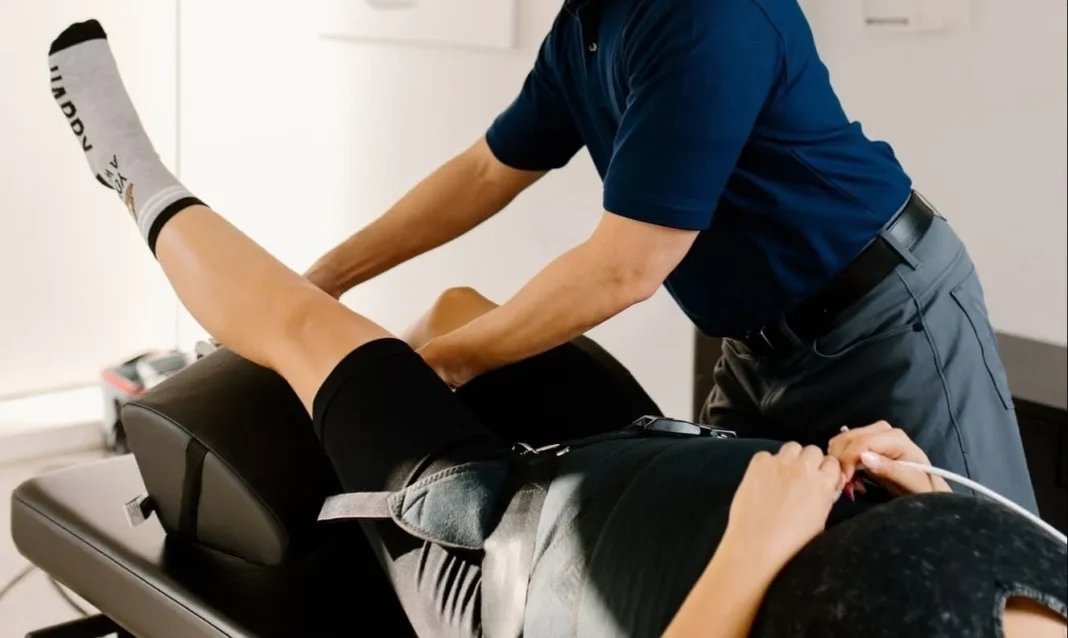Sports medicine focuses on the prevention, diagnosis, and treatment of injuries related to physical activity. This medical specialty addresses the specific needs of athletes and active individuals, helping them maintain or regain function. Practitioners in this field often include physicians, physical therapists, and athletic trainers who work collaboratively to support injury management. They also guide rehabilitation to promote safe and efficient recovery. The emphasis remains on restoring strength, flexibility, and performance without compromising long-term joint or muscle health. By tailoring care plans to physical demands, sports medicine reduces time away from training or competition.
How Do Specialists Diagnose Athletic Injuries?
Diagnosis in sports medicine relies on a combination of physical exams, imaging studies, and functional assessments. Providers begin with a detailed history of the injury, including activity type, symptom onset, and aggravating movements. Imaging such as X-rays, MRIs, or ultrasounds may be used to evaluate bones, ligaments, or muscle tissues. Range-of-motion tests and strength evaluations help clarify the extent of the injury. A precise diagnosis allows clinicians to select the most effective treatment approach. This step forms the foundation for setting recovery benchmarks and tracking progress over time.
What Are Common Sports Injury Treatments?
Treatments vary based on injury type and severity but often include rest, targeted physical therapy, bracing, or anti-inflammatory strategies. In some cases, injections such as corticosteroids or platelet-rich plasma are used to reduce swelling or promote tissue healing. Rehabilitation programs typically focus on rebuilding strength, restoring range of motion, and correcting movement patterns.
Sports medicine providers monitor recovery closely, adjusting treatment to support gradual reintroduction to activity. For injuries that do not respond to conservative care, surgical referral may be required. Early treatment and a structured plan reduce the risk of recurring problems.
How Does Sports Medicine Support Recovery?
Recovery involves more than healing tissue — it also includes restoring function and preventing reinjury. Sports medicine emphasizes controlled progression through rehab phases, allowing athletes to regain skill and confidence. Techniques may include manual therapy, therapeutic exercise, and neuromuscular training. Recovery timelines are customized to match the athlete’s sport, position, and performance goals. Providers focus on both physical capacity and mental readiness before clearing return to play. This approach balances safety with the need for timely recovery.
What Role Does Physical Therapy Play?
Physical therapy plays a central role in sports medicine by addressing mobility, strength, and biomechanical efficiency. Therapists develop individualized treatment plans to correct movement dysfunctions and promote tissue repair. Sessions may involve balance training, resistance work, and sport-specific drills.
Progress is measured using objective metrics such as joint angles, force output, or gait analysis. The integration of therapy into overall injury management helps close gaps between clinical recovery and full activity. Consistent physical therapy often leads to more complete and lasting recovery outcomes.
Consult a sports medicine specialist when an injury limits your ability to perform normal physical activities or causes persistent discomfort. Prompt evaluation is especially helpful after acute injuries, such as sprains or muscle tears, or for chronic conditions like tendonitis. These providers also help with injury prevention strategies and training adaptations. Whether you are a professional athlete or someone returning to regular exercise, specialized care can shorten downtime and guide safe progression. Booking an early consultation helps build an effective treatment and recovery plan.
Start Your Recovery Journey
If you’ve experienced an injury during physical activity, scheduling an appointment with a sports medicine provider is a practical first step. These professionals offer focused care that addresses both the immediate injury and your return to long-term function. Bring any imaging or past records to help guide the initial visit. With a structured recovery plan and expert guidance, you can begin healing and return to your active routine more effectively. Contact a clinic near you to explore your options and move forward with your recovery.
- Pedrovazpaulo Wealth Investment: Unlocking Financial Freedom Through Innovative Strategies
- EO Pis: A Comprehensive Guide to Environmental Objectives and Performance Indicators
- Premiumindo69: The Future of Digital Entertainment
- Macadamia Nut Milk: Health Benefits, Recipes, and Why It’s the Perfect Dairy-Free Alternative
- Hentquz: The Future of Productivity and Collaboration


